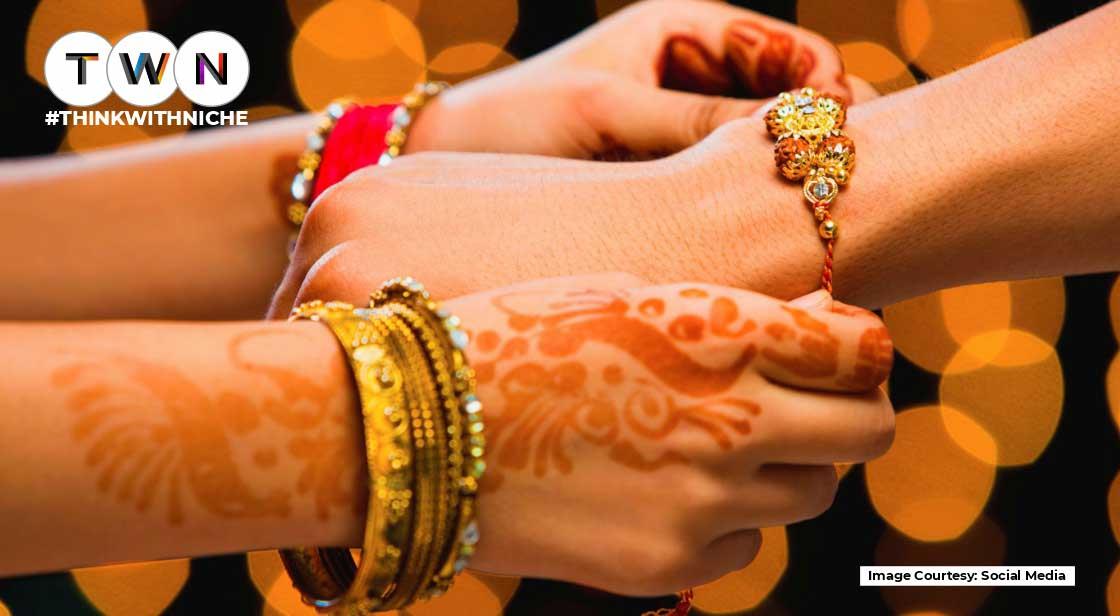
Festivals are a symbol for unity in India . India is a country with many cultures and multilingual people. These traditions are a sign of a society that values positive ethics and cooperates. Festivals are celebrated by all, regardless of religion or caste. Raksha Bandhan, an Indian festival, celebrates the strong bonds between siblings and brothers. The true beauty of this festival is its ability to be enjoyed and shared by people of all religions who feel sibling love.
Raksha Bandhan: Significance
Every festival of the Hindu Panchang has a significant impact on the lives and livelihoods of its inhabitants. People can enjoy the rich culture and traditions of the festivals. These include the mythological stories they use to perform rituals and customs, and the joy of celebrating them. Raksha Bandhan is a well-known festival that celebrates the strong and loving relationships that siblings have with one another. This festival honors the promise of protection made by a brother to his sister. This festival highlights the value of siblings, and how they can make one’s life more enjoyable and better.
Raksha Bandhan's History
Legends from the Hindu mythologies, as well as historical instances, can give a glimpse into Raksha Bandhan 's history. Many mythological and historical stories can be attributed Raksha bandhan's origin.
King Bali and Goddess Lakshmi:
Goddess Lakshmi worried about Lord Vishnu when he vanished from His Abode to protect King Bali. To find Lord Vishnu, she assumed the role of a Brahmin woman and traveled to Bali. Lord Vishnu was acting in the capacity of a gatekeeper to keep his promise to protect King Bali. King Bali granted her shelter. Her presence was a blessing to the island, which flourished and prospered. King Bali was impressed with her and developed a close bond. In return for Rakhi, she asked her husband to send Rakhi from Bali. He confronted her and revealed the truth to her. He also promised to keep her safe for the rest of his life.
Indra And Indrani:
This legend also refers to Raksha Bandhan's origin. Indrani, the wife of Lord Indra, tied a sacred string around her husband’s wrist to protect him from the demons. Indra did this to win the war. This thread enabled Indra to resist powerful demons, and allowed them to taste the dust while fighting. It may seem odd that Raksha Bandhan refers primarily to siblings but it also promises protection for a close friend.
Mahabharata: Draupadi And Lord Krishna
This mythological epic describes many relationships and illustrates the power sacred threads. To stop Lord Krishna from bleeding, Draupadi (Lord Krishna) tie a piece of cloth to her saree. God protected her from humiliation and insults at the court of Kauravas. Another legend says that Kunti, the mother of Pandavas, tied a sacred string around Abhimanyu’s wrist to protect him from war.
Rani Karnavati and Humayun:
Fearing an attack from the powerful Mughal ruler Bahadur Shah Zafar, she sent Humayun one Rakhi, declaring him her brother and asking for his help. Humayun was open and willing to give her Rakhi. He sent his army to Chittor to save Zafar's kingdom. He tried his best to protect her, but fate had other plans. Before he arrived at the palace, Zafar had already conquered her kingdom.
Important for Rakhi Tying Ceremony
Puja, a tradition used to invoke God's blessings and protection for family members and successful completion of tasks, has been in practice for centuries. Raksha Bandhan performs Rakhi Puja to bestow long, healthy and successful lives upon their brothers.
After taking a holy water bath, people change into new clothes and recite the traditional prayers. Sisters prepare a special Rakhi Puja Thali, in which they make a Swastika with kumkum and place Roli, chawal, sweets and a lit diya.
Raksha Bandhan Celebrations In Different Regions of India
Raksha Bandhan is a Hindu festival that's celebrated on the full moon of Shravana in the month. Raksha Bandhan is a sacred occasion to perform various rituals according the Hindu calendar. The spirit of the celebrations is celebrated throughout the country according to various customs that are specific to each area.
Kajri Purnima Central India:
The central Indian farmers celebrate this occasion. Kajri Purnima is the name given to Rakhi Purnima in Madhya Pradesh (Chhattisgarh), Chhattisgarh, and Jharkhand. Most mothers with sons observe this ritual. This ritual marks the start of the sowing season.
Pavitropana:
Pavitropana is the Gujarati celebration of Rakhi Purnima. This is when they offer prayers to Lord Shiva (the God of Death), and also dip a cotton filament into Panchagaivya, a liquid made of five pure elements from cow, to pray to him. The Shivalinga is tied with cow's milk, ghee and curd. Bhavishyapurana also calls it Putrada Ekadashi.
Additional rituals are performed on this day, including Jhulan Purnima or Lumba Rakhi ceremony.
Tags:
festivals in india, raksha bandhan, rakhi
Read This Full ARTICLE, Click Here


Comments
Post a Comment